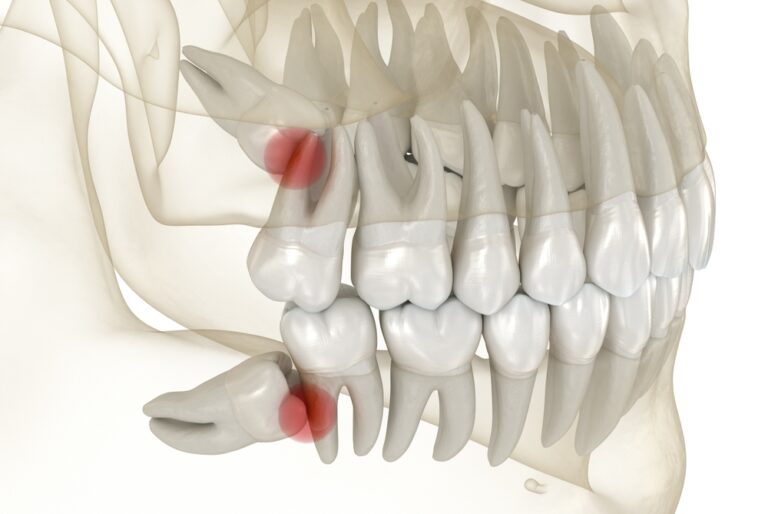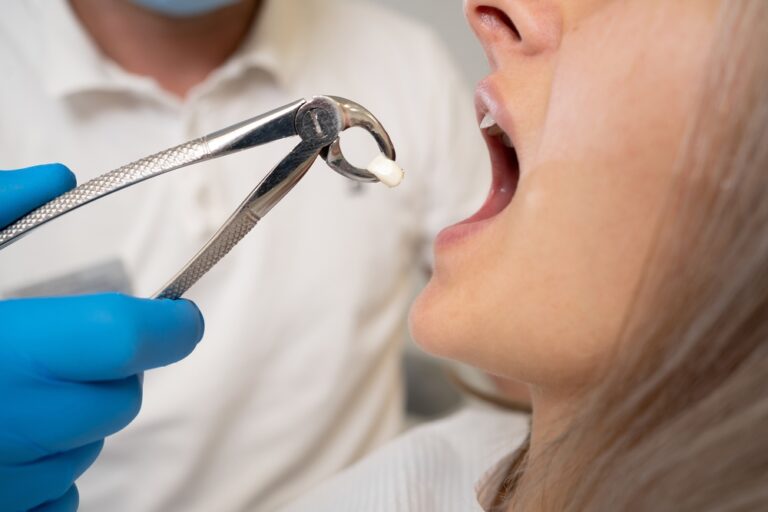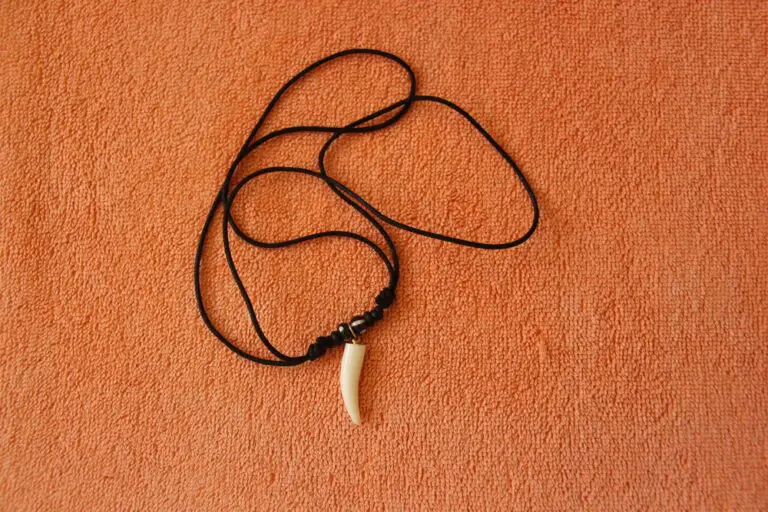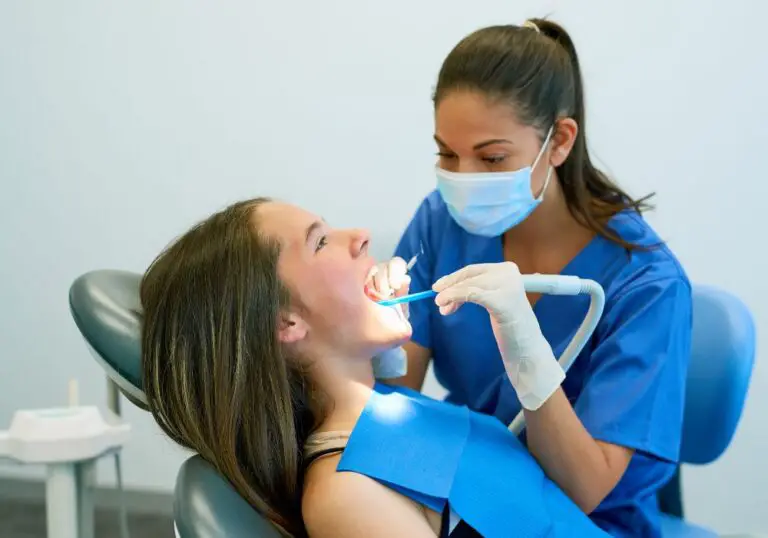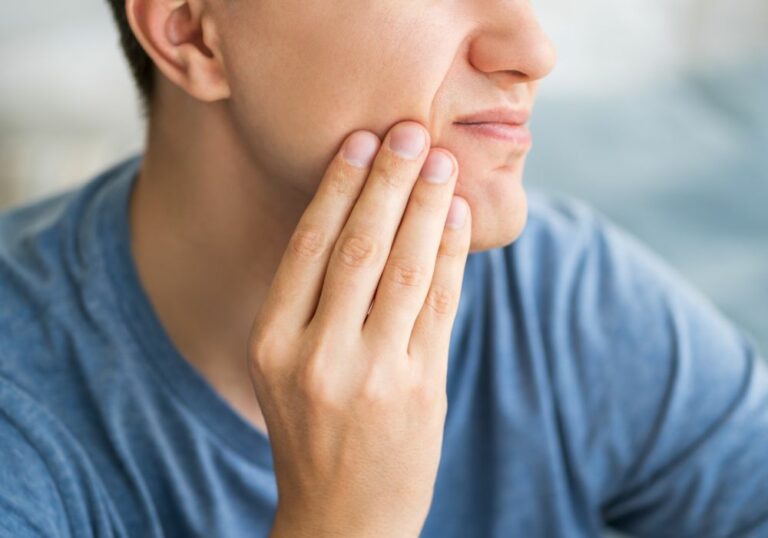Have you noticed your dog grinding his teeth and are worried about this new behavior? You might be asking yourself: why does my dog grind his teeth and what can I do about it? Should you call a vet or will your dog stop this habit on his own?
While some mild teeth grinding may not be anything to worry about, if your dog does it a lot or is clenching his jaw, it could be a sign of an underlying issue. In this article, we explore the reasons your dog may be grinding his teeth, what you can do to stop it, and when to contact the vet.
What is Teeth Grinding?
Teeth grinding, called bruxism, occurs in dogs as well as people. It means the action of clenching the jaws or banging or chattering the jaws together. When dogs do this, they rub the upper jaw along the bottom jaw in a side-to-side continuous motion.
In dogs, teeth grinding can be a symptom of dental or other health issues and may cause long-term damage. Therefore, if you notice your dog often grinding his teeth, visit the vet who can investigate the underlying causes of the behavior.
Teeth Grinding in Dogs
Bruxism is not uncommon behavior in dogs and is often caused by dental or oral pain but it can also be a sign of abdominal pain. Before you contact your vet, observe when your dog is grinding his teeth. What are the circumstances and how else is he behaving? This information may help your vet to diagnose the cause quicker.
Even if there are no underlying health issues behind the teeth-grinding behavior, it is important to get your dog to stop this habit. If the habit is allowed to continue, it will lead to damage to the tooth enamel and dentin.
When the enamel is weakened, your dog’s teeth will have less protection against dental cavities and infections. Over time, this will lead to poor dental health, broken teeth, or tooth loss.
What Can Cause Teeth Grinding in Dogs?
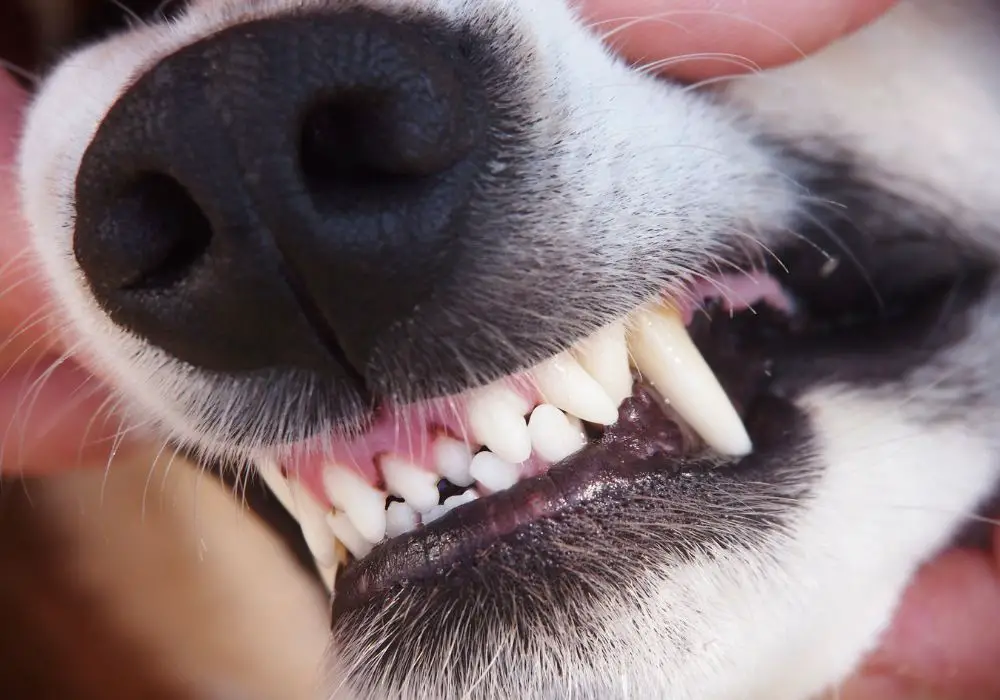
There are several reasons why your dog may be grinding his teeth, which you can read about below. While you can use the list to help you determine the cause of your dog’s behavior, you should still take him to the vet to have the reason properly assessed and addressed.
Oral Pain
One of the most common causes of teeth grinding in dogs is oral pain. The side-to-side motion of their jaws can soothe the pain. This oral pain can be caused by several oral issues, which range from mild and easily treatable to significant and severe issues.
Oral pain can be caused by an oral mass, a broken tooth, exposed pulp, periodontal disease, infection in the tooth root, or oral ulcerations. Sometimes, your dog might have a foreign object, for example from chewing a stick, stuck in its teeth, mouth, or gums.
Dental Diseases
Teeth grinding can also be a sign of dental disease. Dental diseases can affect both young and old dogs and be extremely painful. If the issue is not properly diagnosed and treated, it can shorten your pet’s lifespan.
Oral Deformities and Malocclusion
Sometimes, dogs may retain their puppy teeth when they get their adult teeth. This can cause deformities or malocclusion, which means misaligned teeth. This type of misalignment is called dental malocclusion.
Other times the malocclusion can be skeletal. This happens if the jaw is of abnormal length. Malocclusion can cause your dog discomfort, problems with eating, and trauma in the soft tissue.
To solve the issue, the vet might need to perform a tooth extraction on your dog. This is the most likely treatment option if the malocclusion is caused by a retained tooth or teeth. In other cases, the veterinarian or canine dental specialist may give your dog braces to address the misalignment.
Gastrointestinal Discomfort
Canine teeth grinding can also be a sign of gastrointestinal distress and discomfort. The action can be self-soothing and distract them from the abdominal pain. When they rub their jaws together, it gives them something else to focus on.
Anxiety and Stress
Teeth grinding is not always a sign of physical issues in your dog but can be a sign of anxiety and stress. Although responding to stress and anxiety with bruxism is more common in humans, it is not unheard of in canines.
If the grinding is caused by stress and anxiety, your dog is most likely to grind his teeth while he is asleep. Your dog may be dealing with, for example, social anxiety, nervousness, or separation anxiety if there is no physical cause behind the teeth grinding.
Seizures in the Brain
Sometimes, teeth chattering in dogs can be caused by focal seizures. These seizures are localized, affecting one area of the dog’s brain. If your dog has a focal seizure, the signs may also include twitching eyelids, ears, and lips, and it may lose consciousness.
Teeth Grinding and Bad Breath
Sometimes the teeth-grinding behavior can be accompanied by foul-smelling breath. If you notice your dog’s breath smelling bad, it is likely that he has some type of disease. Check your dog’s tongue and gums when grinding and bad breath appear together.
If you notice any black spots, your dog could have liver disease. Other symptoms include diarrhea, vomiting, weight loss, yellowing of the cornea, and decreased appetite. Breath smelling like rotten meat can be a sign of an oral tumor, while sweet breath can be a symptom of diabetes.
When the bad-smelling breath is accompanied by pale or blue gums, it can mean heart disease, especially if your dog also has difficulty breathing. In some dogs, bruxism together with bad breath can be a sign of kidney failure. Therefore, it is important to always take your dog to the vet if you notice bad breath with bruxism.
Can Bruxism in Dogs Be Stopped?

It is possible to stop bruxism in dogs by treating the underlying cause. The first step is to pay attention to when your dog grinds his teeth. Does he do it when he is awake or asleep? Has it happened just once or twice or is it a regular thing? If the latter, it is time to see the vet.
When you take your dog to the vet for teeth grinding, they are likely to perform some tests to rule out different medical issues. Often, this will include blood and urine lab tests and X-rays. The vet may also perform an oral exam and clean the teeth.
If the bruxism is caused by a physical condition, your vet will decide on the best course of treatment, which may include some type of medication or changes to the dog’s living environment or diet. Bruxism due to dental issues may be solved with tooth extraction or cleaning.
Bruxism Caused by Stress and Anxiety
When it is not physical, your dog may require behavior training and you may wish to consult an animal behaviorist. You need to identify what is causing your dog stress and anxiety and try to eliminate the cause. If that is not possible, you will need to train your dog to tolerate the stressors better.
The behavior training may include positive reinforcement, desensitization treatment, and socialization. Sometimes, it may also be necessary for you, the owner, to change your behaviors around the dog as you could be passing your nervousness or stress to the dog.
You should also provide your dog with tasty treats and chew toys to grind their teeth and gums on instead of their own teeth. Dental treats can also address bad breath and help keep the teeth cleaner.
Preventing Teeth Grinding and Health Issues
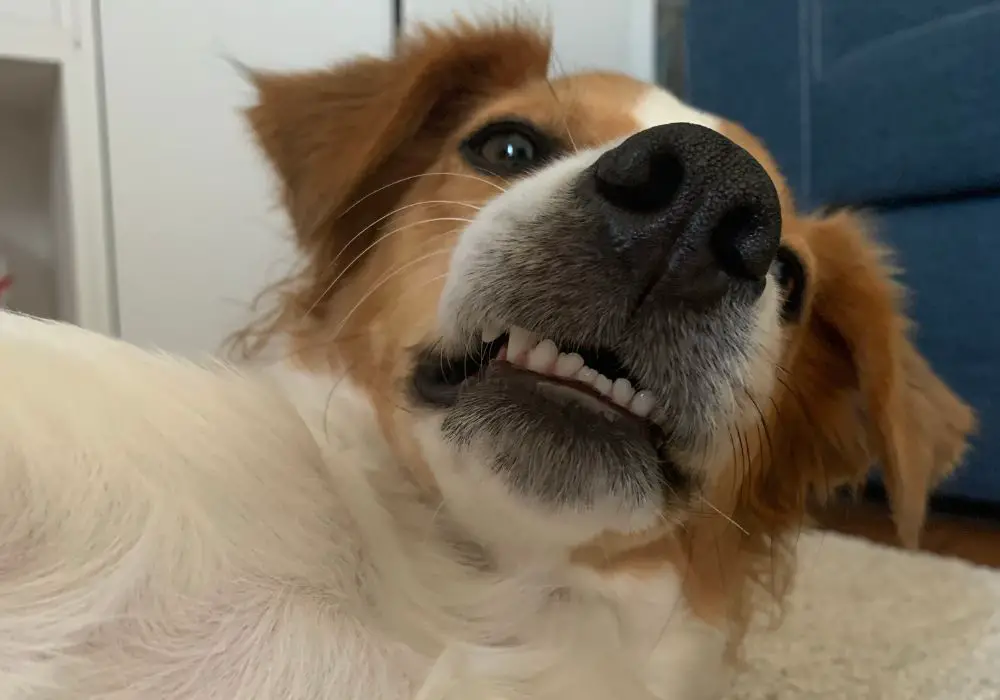
Having a good dental hygiene routine for your dog is an important tool in preventing teeth grinding and dental issues. Brush your dog’s teeth every day with a toothbrush designed for dogs and using canine toothpaste. Do not use toothpaste meant for people as it has ingredients that are toxic to dogs.
In addition to brushing their teeth, provide your dog with a healthy diet, plenty of exercise, and a safe living environment. This is important to all dogs but especially for rescue dogs who might suffer from trauma. A professional dog trainer may be able to help you in providing your dog with the best living environment to reduce anxiety.
Conclusion
If your dog is grinding his teeth and this happens regularly, it is most likely a sign of either a physical issue or stress and anxiety. Since it could be a sign of some severe health issues, especially when accompanied by bad breath, you should take your dog to a vet for an examination.
Most causes behind bruxism can be treated if addressed early enough. Your dog may need medical treatment or behavior modification if the issue is stress-related. Help your dog stay healthy and prevent teeth grinding by looking after his teeth and providing him with a safe environment and a healthy diet with plenty of exercise.

